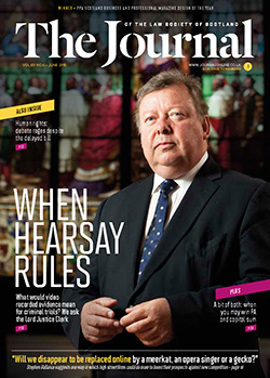When reputation is not enough…

In a judgment handed down on 13 May (Starbucks (HK) Ltd v British Sky Broadcasting Group [2015] UKSC 31), the Supreme Court has clarified that businesses must have goodwill in the jurisdiction in order to prevail in an action for passing off. Mere reputation is not enough.
The claimants, Starbucks (HK) Ltd and PCCM Media, had provided an internet TV service via set-top boxes to customers in Hong Kong since 2003. Branded “NOW TV”, the service comprised regular broadcasts, catch-up and on-demand services, mostly in Mandarin and Cantonese. PCCM had planned to expand into the UK since 2009. By 2012 it was in discussions with a possible partner and launched an app in the UK in June.
In March 2012, Sky announced its intention to provide an internet TV service to UK customers, also called NOW TV. It launched in July.
PCCM alleged that Sky’s use of the NOW TV brand amounted to passing off.
Within the jurisdiction
Lord Neuberger, delivering the court’s unanimous judgment, rejected PCCM’s argument.
The court reiterated that three elements must be established to succeed in a passing off case (Reckitt & Colman v Borden [1990] RPC 3):
- goodwill or reputation attached to the goods or services in the mind of the purchasing public;
- a misrepresentation by the defendant likely to lead the public to believe its goods or services were the goods or services of the claimant;
- loss or likely loss to the claimant by reason of the misrepresentation.
The issue was whether PCCM met the first of these requirements when it was not licensed by OFCOM to broadcast in the UK, its service could not be received here, and in short, it had no actual customers here. PCCM argued that in the digital age, it was inconsistent with reality and impractical to treat a brand’s reputation or goodwill as being limited to jurisdictions in which the owner had a business with customers. In any event, Chinese-speaking UK residents were aware of its NOW TV service from previously visiting, or residing in, Hong Kong; its content had been available to view on its website since 2007; its content was also available on PCCM’s YouTube channel; and NOW TV programmes were available on some flights to the UK.
The court recognised that PCCM’s arguments had force, but ultimately was not persuaded by them. Extending the law of passing off to protect companies with only a reputation risked tilting the balance between protection and free competition too far towards protection.
Lord Neuberger observed that in the absence of a requirement to have actual business and customers in a jurisdiction to establish goodwill, organisations could easily claim to have a reputation in the UK and prevent the use of a brand here, without spending any time or money developing a market, and potentially without ever intending to do so.
As such, the court concluded that the law requiring goodwill, as opposed to mere reputation, in the jurisdiction should be reaffirmed. PCCM had not established that it had goodwill in the UK.
What amounts to goodwill?
The court also gave helpful guidance on what amounts to sufficient goodwill. In essence, it stated that:
- Mere reputation is not enough.
- The claimant must have customers in the jurisdiction, as opposed to people in the jurisdiction who happen to be customers elsewhere.
- However, it could be enough if the claimant could show there were people in the jurisdiction who, by booking with or purchasing from an entity in the jurisdiction, had obtained the right to receive the claimant’s service abroad.The claimant itself need not have an establishment in the jurisdiction in order to have customers there. Sales through someone in the jurisdiction acting for or on behalf of the claimant would suffice.
The court noted that the requirement for goodwill might lead to difficult questions of fact, and result in decisions which could appear rather harsh, but the approach was fair overall.
This case provides helpful clarification of what constitutes the necessary goodwill to support a passing off claim. However, it is unlikely to be the last word on the matter. The court acknowledged the scope for difficult decisions. One example is businesses abroad whose UK customers book their services exclusively through foreign websites (e.g. .de, .es websites). Would such businesses be held not to have goodwill in the UK?
The court also explicitly left open the question of whether a company that has launched a substantial advertising campaign in the UK, but does not yet have customers here, has sufficient goodwill to bring a passing off claim.
Thus, the question of where to draw the dividing line between reputation and goodwill has not yet been fully answered.
In this issue
- Weighing the risks
- Private parking fines – are they enforceable?
- Scotland – home of (dangerous) golf
- Shareholder details: the right to refuse
- Perils of the owner-occupied croft (fuller version)
- Reading for pleasure
- Opinion: Thomas Ross
- Book reviews
- Profile
- President's column
- Land Register completion: one year in
- People on the move
- Rights: whose final say?
- The word on the street
- Screen test
- Making the best of mediation
- Keep up the payments
- The right priorities
- When reputation is not enough…
- Sports justice – being seen to be done?
- Source of disputes
- CML Handbook: the new deal
- Perils of the owner-occupied croft
- In-house and in-tune in the Commonwealth
- Stair Society seeks new blood
- New Build Standard Clauses revised
- Law reform roundup
- Leven's last hole rarely in benevolent mood
- Year of the new look
- AML just became simpler
- "My time is valuable!" Oh really?
- Learning opportunity
- Ask Ash
- Technology: slave or master?






